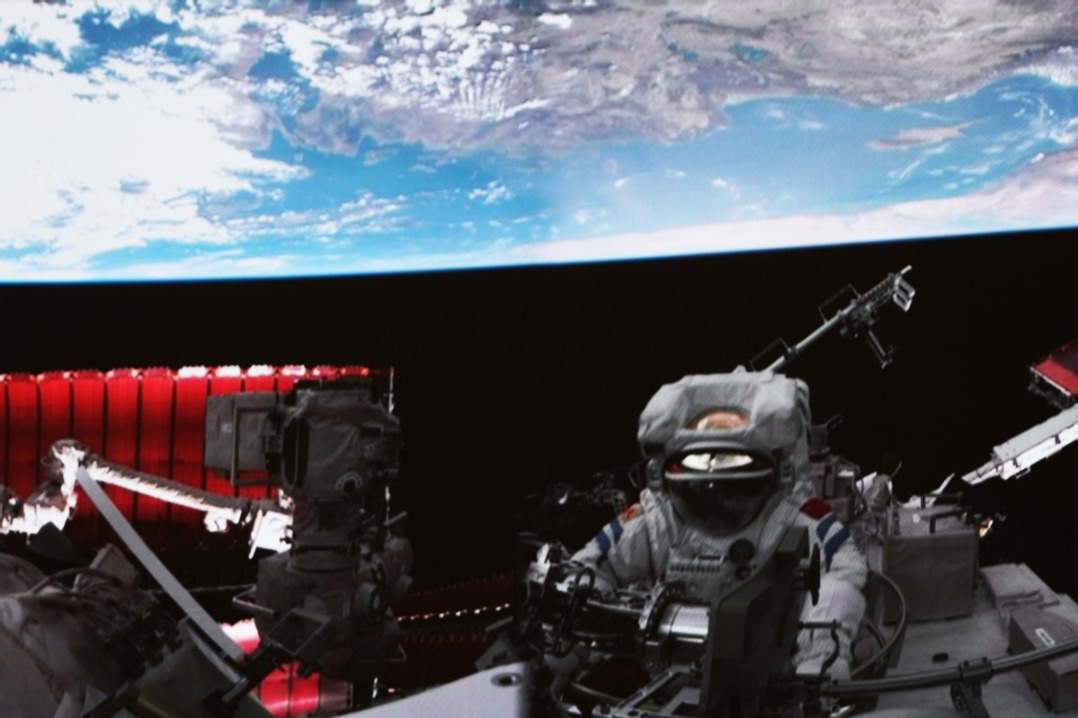Space should be a realm of collaborative endeavor: China Daily editorial
chinadaily.com.cn | Updated: 2019-03-04 20:16

China may still have a long way to go before it has the space capabilities depicted in the sci-fi blockbuster The Wandering Earth. Yet it has undoubtedly made remarkable progress over the past decades.
And it is China’s consistent policy to undertake its space program only for scientific and technological progress, and to exploit space resources for peaceful purposes, a position that was again accentuated by Wu Weiren, chief designer of China’s lunar exploration program.
A member of the 13th National Committee of the Chinese People’s Political Consultative Conference, Wu said prior to the opening of the country’s top political advisory body’s second session that China will gradually open data collected by the Chang’e 4 lunar probe to the world. He also said the country plans to launch a probe to orbit Mars next year.
More ambitiously, there are also reports that China hopes to operate a commercially viable solar space station by 2050 that could beam energy back to Earth via microwaves or lasers, which scientists consider an effective way to combat climate change.
China is a latecomer in space. It only sent its first satellite into orbit in 1970. And despite the progress it has made, the country still lags far behind in space technology compared with major powers such as the United States. Of the more than 120 attempts at lunar exploration, China accounts for only five. Its annual space program spending is also far less than the US, which has allocated $21.5 billion for NASA’s 2019 budget.
It is therefore ridiculous, and even ill-intentioned for some to try to exaggerate China’s space capability, misinterpret its space ambitions, and depict the country as a rapidly growing space threat. A recent Pentagon report warned that China and Russia are each creating capabilities to challenge the pre-eminence of the US in space, together with lasers that would destroy US satellites.
This has only served to give a pretext for hawks in the US to seek military expansion in space. US President Donald Trump, who sees space as “a war-fighting domain just like the land, air and sea”, has signed a directive to create a space force as a branch of the US military. Should Congress give its approval, this is certain to spark an arms race in space.
Peace-loving countries in the world face an arduous task to safeguard the peaceful use of space.
The US should heed the sentiments of one of its own beloved TV and movie franchises — Star Trek — and focus on space cooperation as a means to explore strange new worlds, seek new life and boldly go where no humans have gone before.
























